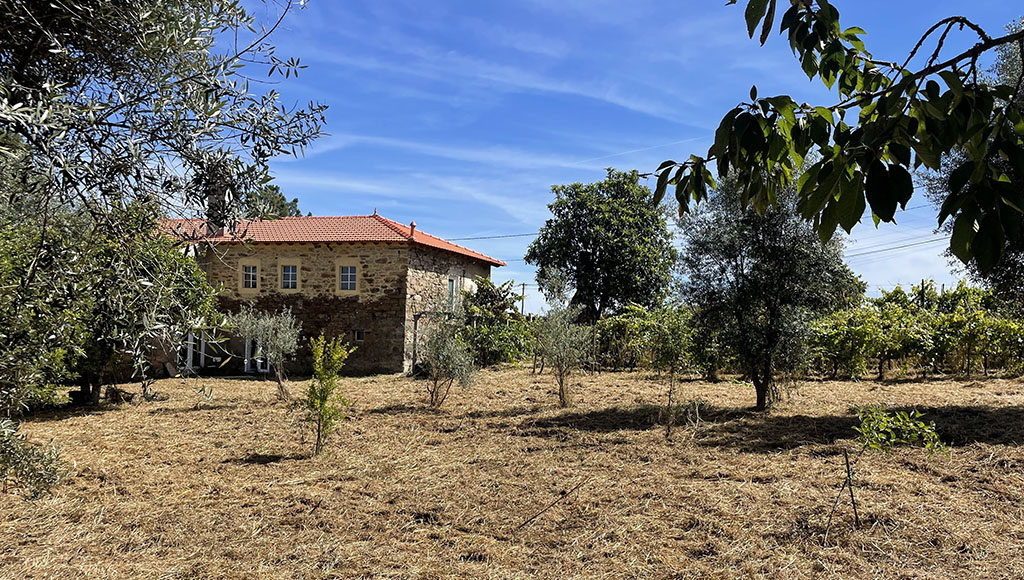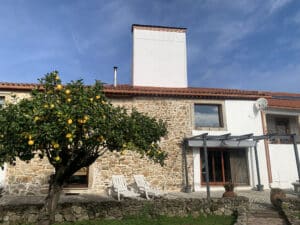Sitting in the Lisbon office of Edge International Lawyers on a warm July day in 2019, I signed the documents and Rural Properties was born – a new company with ambitions based on weeks of research and my ambition to create a new business in the centre of Portugal.
This research included two weeks of driving around the Serra da Estrela, meeting local estate agents, lawyers, restaurateurs, café owners and many immigrants who had made new lives in one of the country’s most attractive areas.
The basis of the new property business was simple – ‘buying, doing up and selling at a profit’. Since 2003, I’d gained experience in the Algarve of building villas from the ground up, refurbishing 1980s homes and, finally, working on centenary properties in towns, but rural property was to prove a challenge.

The vagaries of Portugal’s property planning regulations had steered me towards renovation projects that needed only the ‘Comunicação do Início dos Trabalhos’, a wonderful document that enables work legally to take place without the cost and time-delay of having to submit a full architectural project.
So, with the new company established, I selected the western part of the central region and its achingly romantic topography. From a business point of view, house prices are higher in this western area and the market seemed brisker, until the pandemic struck.
Covid-induced lockdowns and a general fear of the future hampered many businesses during this period but enabled me to spend time researching the market in more detail, cementing links with local service suppliers and preparing for the time when travel restrictions were lifted and the property market came back to life.

I selected four ‘pilot project’ village properties. There was no shortage of choice as the depopulation of Portugal’s rural areas has followed the pattern in southern Mediterranean countries since the 1960s.
Time also was spent in establishing a highly responsive and effective business team, including Prelhaz lawyers in Faro, the accountancy practice Taxlibris in Lisbon, specialist local lawyers and solicitors, resellers, and all-important contracts manager to drive the construction teams. The best route in choosing the right people was through recommendations, while quickly dropping any service provider who was not the right fit, ‘pour encourager les autres’.

Our pilot projects showed that the margins were good, the speed of conversion took longer than expected while the construction teams were being assembled, and that the overall number of euros in profit would be insufficient if the operation continued only to produce properties selling at under €100k.
An opportunity came up to buy a much larger property in Pedrógão Pequeno, a charming and historic town in the Sertã municipality. Three investors were interested and a small consortium was assembled to purchase Casa Adelina and fund its renovation. This project marked an upward shift in the business that now sells renovated properties for between €175,000 and €425,000.
As part of the company’s development, renovation projects now are supported by Concepto Studio, a design service run by two Portugal property veterans, Arnold Aarssen and Eric de Bruijn, who are working with buyers to create ideal layouts and tailor-made interiors.

Rural Properties’ early investment model adapted and, as the company’s reputation developed, further investors emerged, seeking to align with a company with a social impact as well as enjoying the fun and satisfaction of being part of the renovation projects. The business now assembles small groups of investors to fund larger projects, and the website has been revamped to enable people to join a list and review possibilities.
Reputation is key in any business, but in a more visible, rural business environment, there’s certainly no room for erratic decision-making, poor service or expressions of frustration when things don’t happen quickly enough. This isn’t to say that I accept the way things are done – traditionally this is ‘slowly’, but there are ways of achieving objectives where each of those involved feels valued and motivated.
There’s often risk in moving somewhere new, especially when you have to earn a living.
Those who successfully have moved to Central Portugal, either have a retirement income or, if working, possess transportable skills. For those establishing themselves inland, a lower cost of living helps ensure that lean months are easier to ride out and that good months seem even better when a coffee is still 60 cents and a decent meal for two can be had for under €20.

One common factor for business success ‘under a foreign sun’ is the ability to remain calm and determined, not to moan about ‘Portuguese bureaucracy’, to realise things are not like they are ‘back home’, accept that this now is home, to network and not to be afraid to ask for help.
Rural Properties now is working on several new and exciting projects and is looking for more, demonstrating that it is possible to develop a new business in Portugal’s rural interior, far from the vagaries of the property markets in Lisbon, Porto and the Algarve and higher operating and living costs.
By Paul Rees
The author runs Rural Properties, an innovative business that invests in the Central Region, buying, renovating and selling properties. For investment enquiries: www.rural-properties.com or contact info@rural-properties.com



















